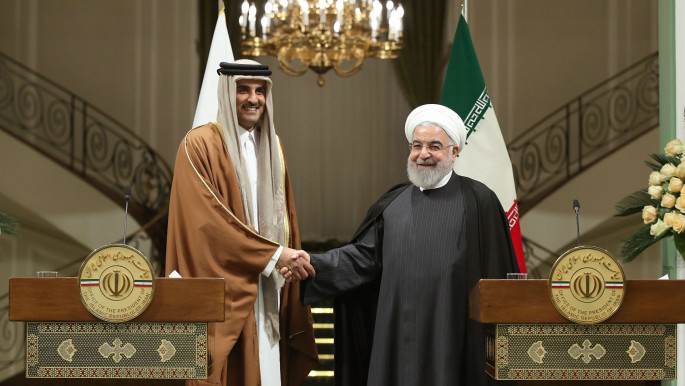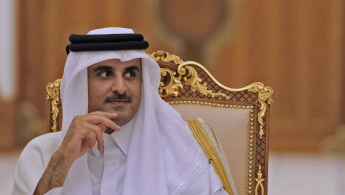Qatar Emir accepts PM's resignation, appoints top aide as successor
Qatar’s prime minister has resigned and been replaced by a close aide of the emir, the office of Emir Sheikh Tamim bin Hamad Al Thani has announced.
Sheikh Khalid bin Khalifa bin Abdelaziz Al Thani, who was the head of the emir’s court, will succeed Sheikh Abdullah bin Nasser Al Thani, the state-run Qatar News Agency reported today.
No reason was given for the previous prime minister’s resignation.
With the new appointment, Sheikh Abdullah also loses his role as interior minister to Sheikh Khalid, although all other key cabinet posts remain unchanged.
The emir issued an order "appointing His Excellency Sheikh Khalid bin Khalifa bin Abdulaziz Al-Thani as prime minister", the state-run Qatar News Agency reported, adding it was effective immediately.
The new premier previously worked in the gas industry and was educated in the United States before going on to work for Sheikh Tamim when he was the crown prince, according to his official biography.
Sheikh Khalid was born in 1968 and since 2014 he was the chief of the Amiri Diwan, an office that manages the emir’s connections to government ministries.
 |
| The Qatar Emir met with Rouhani over easing regional tensions [Getty] |
Sheikh Tamim announced plans in November for the Gulf state's consultative council to be partly elected by the time Qatar hosts the World Cup in 2022.
Regional tensions
Sheikh Abdullah had been prime minister and interior minister since 2013. In recent months, he had embarked on two closely watched visits to Saudi Arabia to attend regional summits.
Qatar remains the subject of a diplomatic boycott imposed in 2017 by Saudi Arabia, the United Arab Emirates, Bahrain and Egypt over accusations that Doha has backed terrorists and sought closer ties with Iran. Qatar vehemently denies these allegations.
Recent "sports diplomacy", which saw football teams from Saudi Arabia, the UAE and Bahrain travel to Qatar for the Gulf Cup, has raised hopes of a thaw.
Saudi Arabia also appears to be taking a more conciliatory approach towards Qatar following after more than two years of stalemate since the blockade began.





 Follow the Middle East's top stories in English at The New Arab on Google News
Follow the Middle East's top stories in English at The New Arab on Google News
![Israeli forces ordered bombed Gaza's Jabalia, ordering residents to leave [Getty]](/sites/default/files/styles/image_330x185/public/2176418030.jpeg?h=a5f2f23a&itok=_YGZaP1z)

